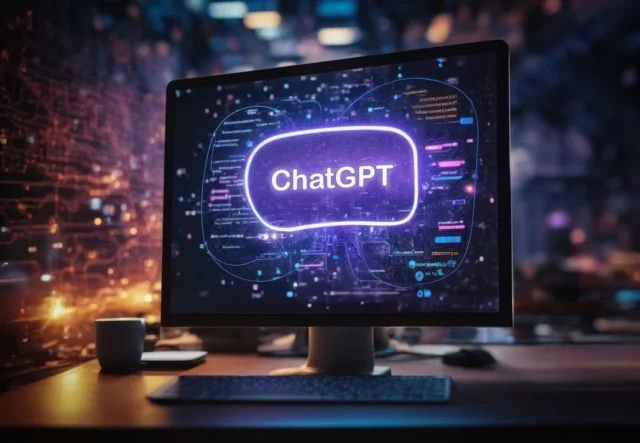You’ve probably heard ChatGPT can write posts, emails, jokes or so many other things you can do with different prompts. But now, OpenAI introduces new Deep Research tool for ChatGPT turns it into a powerhouse for serious work. Let’s break down how it works, why it matters, and whether it’s right for you.
We currently live in a world where businesses are paying hundreds of dollars to people for writing engaging articles and blogs, and thousands of dollars per month for social media marketing and SEO. Now using ChatGPT, anyone including you can do this really well – even if you have no experience in this! Most businesses are not aware of or are not using this right now – which is where you can come in and undercut existing providers while doing almost zero work – and this book will show you how to step-by-step – with instructions you can copy and paste. This market may become saturated a year from now – but this is the right time to start!
—————————–Recommendations; Please continue reading below——————————
 ASUS Chromebook C223 11.6″ HD Laptop Shop Now
ASUS Chromebook C223 11.6″ HD Laptop Shop Now
This Asus HD Laptop is an amazon’s choice for ‘chrome computer laptop’ is reviewed by 980+ reviewers that is available at only $249.99. It is ready for productivity and performance while being on the go or travelling, with speedy performance, robust security, and convenience for the user. This laptop has Lightweight 2.2 pound body and with thin and premium metallic finish for a sleek appearance having 11.6 inch HD 1366×768 Anti-Glare Display. The machine is powered by the Intel Celeron N3350 Processor (2M Cache, up to 2.4GHz) for fast and snappy performance including 4 GB DDR3 RAM; 32GB eMMC hard drive; No CD or DVD drive with it. Learn more about this product >>>
What Is New Deep Research Tool for ChatGPT?
OpenAI upgraded ChatGPT to analyze complex data, pull insights from multiple sources, and even create charts. Think of it as a research assistant that works 24/7.
Key Features You’ll Use:
- Real-time web browsing: No more outdated info. It scans the latest studies, news, or reports.
- Citations included: See where facts come from. Verify them yourself.
- Data visualization: Ask for charts or tables. Get answers you can paste into presentations.
- Multi-source synthesis: Compare conflicting studies in seconds.
Who Should Try It?
- Students: Speed up thesis research.
- Professionals: Build reports faster.
- Curious minds: Dive deep into topics like climate trends or AI ethics.
Pros vs. Cons: Straight Talk
Why You Might Love It:
- Saves time: Skip hours of Googling.
- Free(ish): Basic access starts at $20/month (ChatGPT Plus).
- New ways to learn: Ask “dumb questions” without judgment.
What to Watch For:
- Not perfect: It can still make mistakes. Double-check critical facts.
- Cost: Enterprises pay more, but teams get collaboration tools.
- Privacy: Avoid sharing sensitive data.

How It Solves Real Problems
- “I’m stuck in a research rabbit hole.”
- The tool summarizes key points from 10+ sources. You focus on writing.
- “I need data visuals ASAP.”
- Type, “Show a table comparing renewable energy costs by country.” Done.
- “Is this study credible?”
- ChatGPT checks author credentials, publication dates, and cross-references.
FAQs: What People Are Asking
Q: Can it replace Google Scholar?
A: Not yet. Use both. ChatGPT finds patterns; Google Scholar digs deeper.
Q: Is it safe for confidential projects?
A: Use ChatGPT Enterprise for data encryption. Avoid free versions.
Q: How current is the data?
A: Real-time browsing means answers can include news from this week.
Q: Will it make researchers lazy?
A: It’s a tool, not a crutch. You still decide what’s relevant.
Future Trends to Watch
- Collaboration upgrades: Share live research dashboards with teams.
- AI fact-checkers: OpenAI plans tools to auto-flag inaccuracies.
- Cheaper plans: More tiers may come for casual users.
How to Get Started
- Try ChatGPT Plus: $20/month unlocks advanced features.
- Test simple queries: “Find recent studies on AI in healthcare.”
- Push limits: Ask for side-by-side analysis or counterarguments.
Why This Matters Now
Research isn’t just for academics. Whether you’re writing a blog, planning a startup, or debating a friend, this tool cuts your work in half. Because let’s face it—time is the one thing you can’t Google.
Ready to try it? Head to OpenAI’s site, grab a subscription, and say goodbye to endless tabs. Your future self will thank you.
Now loading...







